Introduction: Why Ireland is a Popular Choice for International Students in 2025
Ireland has become one of the top destinations for international students in 2025. Known for its world-class education system, English-speaking environment, and welcoming culture, Ireland attracts students from all over the globe. The country is home to renowned universities like Trinity College Dublin, University College Dublin, and National University of Ireland, Galway. According to a report by Education in Ireland (link), the number of international students has increased significantly due to the availability of post-study work visas and strong job prospects.
The high quality of education, combined with opportunities to work part-time, makes Ireland a preferred choice for students pursuing a Master’s degree. However, many students often focus only on tuition fees and overlook the hidden costs of living and studying in Ireland.
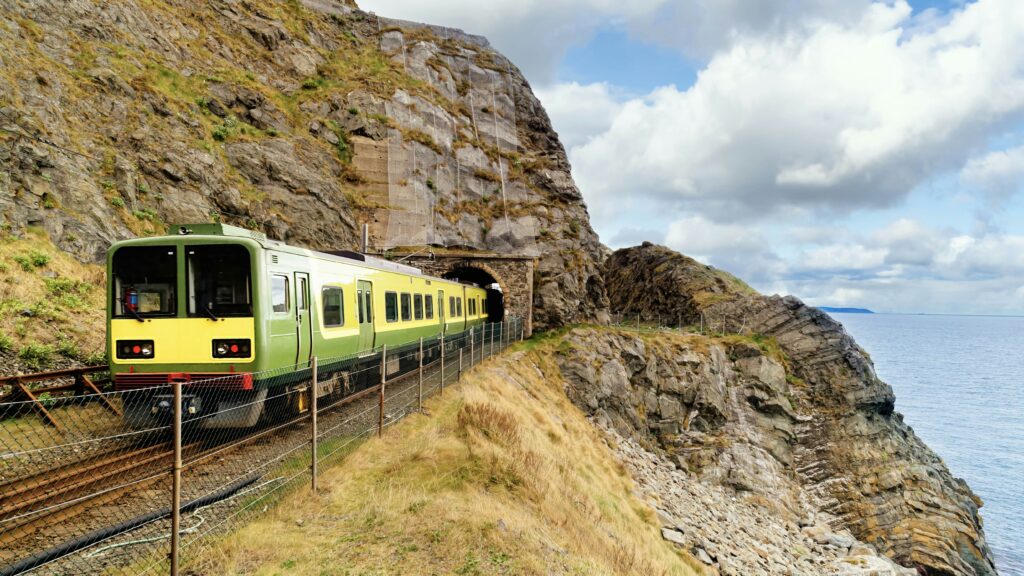
The Hidden Costs of Pursuing a Master’s in Ireland
While the tuition fees for Master’s programs in Ireland can range from €10,000 to €25,000 per year, they are just the tip of the iceberg. Many students are surprised to find that the actual cost of living can be much higher than anticipated. Hidden costs like accommodation, transportation, health insurance, and daily expenses can quickly add up, putting a strain on student budgets. For instance, the cost of renting a room in Dublin can go up to €800-€1,200 per month (link).
These additional expenses can catch students off guard, especially those who have limited financial support. The key to managing these costs is understanding them beforehand and planning accordingly.
Why It’s Important to Understand These Costs
Understanding the hidden costs of studying in Ireland is crucial for several reasons. First, it helps students create a realistic budget that goes beyond just tuition fees. Proper financial planning can prevent situations where students might have to compromise on essentials or take on part-time jobs that affect their studies. Additionally, being aware of these costs allows students to explore options like scholarships, part-time work, and student discounts to manage their expenses better.
Moreover, students can benefit from using budgeting apps like Revolut or N26, which are popular among international students for managing finances efficiently. Websites like Citizens Information (link) provide helpful resources on budgeting and financial support for students in Ireland.
By planning for these hidden costs, students can focus more on their studies and less on financial stress. In the following sections, we will explore these hidden expenses in detail and provide tips to manage them effectively.
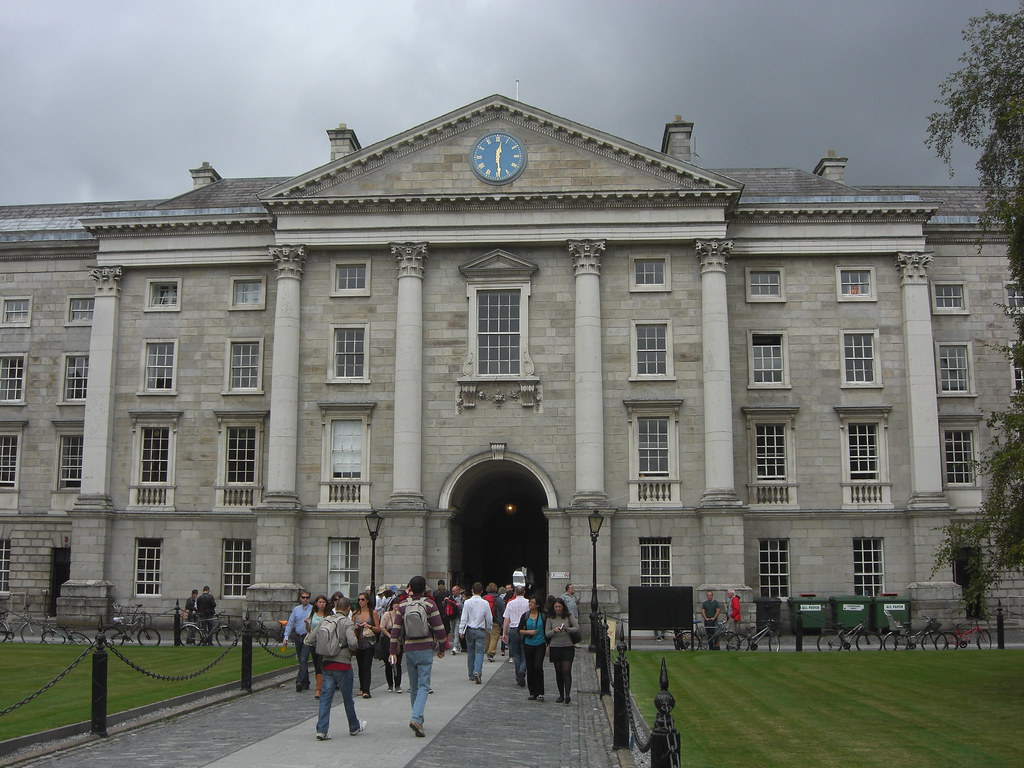
Tuition Fees vs. Actual Cost of Education in Ireland for Master’s in 2025
Pursuing a Master’s degree in Ireland is a dream for many international students. Known for its high-quality education and career opportunities, Ireland offers a range of Master’s programs in fields like business, engineering, IT, and healthcare. However, when planning your studies, it is essential to understand that the actual cost of education goes far beyond just tuition fees.
Tuition Fees for Master’s in Ireland: EU vs. Non-EU Students
The tuition fees for a Master’s program in Ireland vary significantly for EU and non-EU students. For EU students, the fees typically range from €4,000 to €9,000 per year, depending on the university and course. On the other hand, non-EU students often pay between €10,000 and €25,000 annually. Programs like MBA or specialized courses in medicine or data science can cost even more.
For detailed information on tuition fees for various courses, you can visit the Education in Ireland website (link). This difference in fees is due to government funding for EU students, which non-EU students do not receive.
Hidden Costs Beyond Tuition Fees
While tuition fees are the most visible part of the cost, there are several hidden costs that many students overlook. Here are some of them:
1. Registration Fees
In addition to tuition, most universities in Ireland charge a registration fee of about €200 to €300 annually. This fee covers administrative services and access to student facilities.
2. Exam Fees
Some courses, especially those in business and finance, may include separate exam fees that range from €50 to €150 per exam. For international certifications or professional courses, these costs can be even higher.
3. Course Materials and Textbooks
The cost of textbooks, lab materials, and software can add another €500 to €800 per year to your budget. Many courses require specific software licenses, which can be costly. Using second-hand books or university libraries can help reduce these expenses.
Cost of Mandatory Health Insurance for Non-EU Students
For non-EU students, having health insurance is mandatory. The average cost for a basic plan is about €120 to €150 per year. However, if you want a more comprehensive plan, it can go up to €500 annually. You can find more information about health insurance requirements on the INIS (Irish Naturalisation and Immigration Service) website (link).
Additional Costs: Student Services and Labs
Many universities charge extra fees for access to labs, libraries, and sports facilities. These fees can range from €100 to €300 per semester. Additionally, some courses include field trips or practical training, which can also increase the overall cost.

Cost of Living in Ireland for International Students in 2025
If you are planning to study in Ireland in 2025, it is essential to understand the cost of living beyond tuition fees. Ireland is known for its high quality of life, but it can also be expensive, especially for international students. Knowing what to expect can help you budget effectively and avoid financial stress. According to a report by Numbeo (link), the cost of living in Ireland has been steadily rising, particularly in cities like Dublin, Cork, and Galway.
Accommodation Costs in Ireland
Accommodation is often the most significant expense for students. In 2025, the average rent for a shared room in Dublin is around €800 to €1,200 per month. In cities like Cork and Galway, you might find shared rooms for €600 to €900 per month. Renting a private apartment can cost even more, ranging from €1,200 to €1,800 per month in Dublin.
To save on rent, many students opt for on-campus housing or shared accommodations. Websites like Daft.ie (link) and Rent.ie are popular for finding affordable housing options. It is advisable to start your accommodation search early, as demand is high.
Utility Bills: Electricity, Internet, and Heating
In addition to rent, you will need to budget for utility bills, which typically include electricity, internet, and heating. On average, utility bills cost around €120 to €160 per month for a shared apartment. Internet services can cost an additional €30 to €50 per month.
Due to Ireland’s cool climate, heating costs can be significant, especially during winter. Using energy-efficient practices, like turning off heating when not needed, can help reduce these expenses. Websites like Bonkers.ie (link) allow you to compare utility providers to find the best rates.
Grocery and Daily Expenses: Average Monthly Budget
Grocery shopping is another essential part of your monthly budget. On average, students spend about €250 to €350 per month on groceries, depending on their dietary preferences and lifestyle. Shopping at budget-friendly stores like Lidl, Aldi, and Tesco can help manage costs.
Daily expenses such as public transportation, mobile data, and leisure activities can add another €100 to €150 per month. The cost of a Student Leap Card for public transport is approximately €100 per month for unlimited travel within Dublin. For more details on public transport costs, visit the Transport for Ireland website (link).
Tips to Reduce Living Costs In Ireland
- Cook at Home: Eating out can be expensive. Preparing meals at home can save a significant amount of money.
- Student Discounts: Many places in Ireland offer student discounts for transportation, shopping, and entertainment. Make sure to carry your student ID.
- Budgeting Apps: Using apps like Revolut and Splitwise can help track and manage expenses effectively.
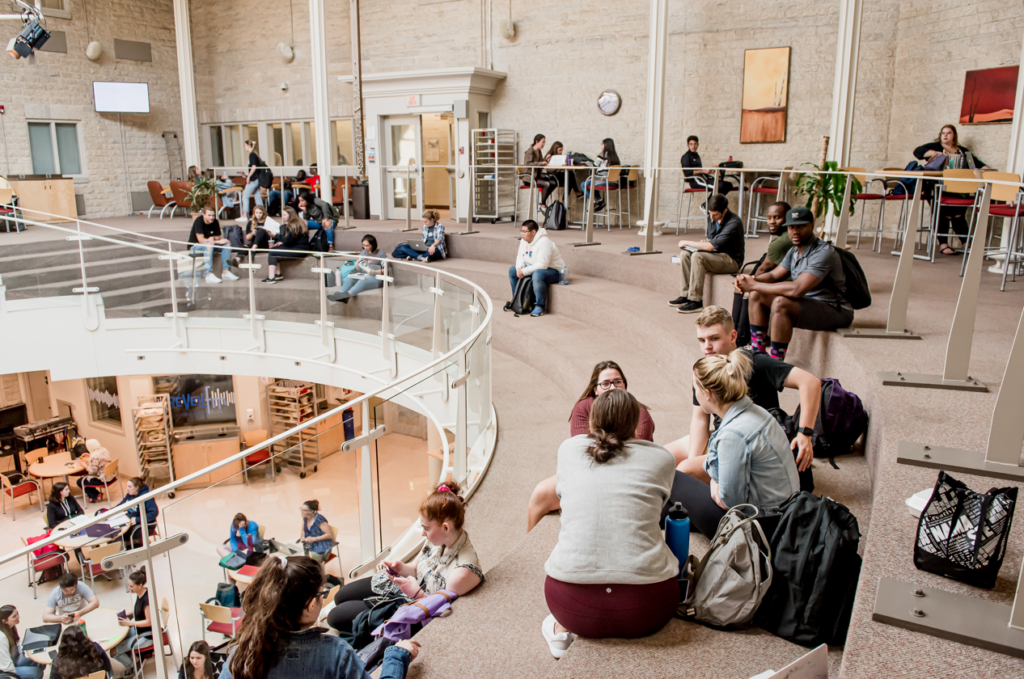
Hidden Costs of Student Accommodation in Ireland in 2025
Finding a place to stay in Ireland as an international student can be both exciting and stressful. While the advertised rent might seem manageable, many students are surprised by the hidden costs that come with student accommodation in Ireland. From security deposits to maintenance fees, these extra expenses can quickly add up. Understanding these costs beforehand can help you budget more effectively and avoid unpleasant surprises.
According to Daft.ie (link), the demand for student accommodation in cities like Dublin, Cork, and Galway is higher than ever, leading to rising costs and additional fees.
Security Deposits and Advance Rent
One of the first hidden costs you will face is the security deposit. Most landlords in Ireland require a deposit equal to one or two months’ rent. For example, if your monthly rent is €800, you might need to pay up to €1,600 as a deposit. This deposit is refundable if there are no damages at the end of your lease. However, disputes over deposits are common, especially if landlords claim deductions for minor damages.
In addition to the security deposit, many landlords also ask for advance rent of one month, meaning you might need to pay up to three months’ rent upfront before moving in. Make sure to get a written agreement specifying the conditions for refunding the deposit to avoid disputes later.
Maintenance Fees and Utility Surcharges
Living in private student accommodations often comes with additional maintenance fees. These fees can range from €50 to €150 per month and cover services like cleaning of common areas, waste management, and minor repairs. In some cases, these fees are not included in the advertised rent and can be a surprise when you move in.
Utility surcharges are another hidden cost to consider. While some student accommodations advertise “all-inclusive rent”, many have a cap on utility usage. If you exceed this limit, you may be charged extra. For example, if the limit is €50 per month for electricity and you use more, the additional amount will be billed separately.
Hidden Charges in Private Accommodations vs. University Hostels
Private accommodations often have more hidden charges compared to university hostels. For instance:
- Booking Fees: Some private student accommodations charge a non-refundable booking fee of €100 to €200.
- Contract Renewal Charges: Renewing your lease might come with a fee of €50 to €100.
- Cleaning Fees: A one-time cleaning fee of €50 to €100 is common when you move out.
In contrast, university hostels usually offer transparent pricing with fewer hidden charges. However, they can still include fees for amenities like laundry, gym access, and storage. On-campus housing also requires you to pay the full semester’s rent in advance, which can be a significant upfront cost.
For a comparison of student accommodation options, you can visit the Education in Ireland website (link).
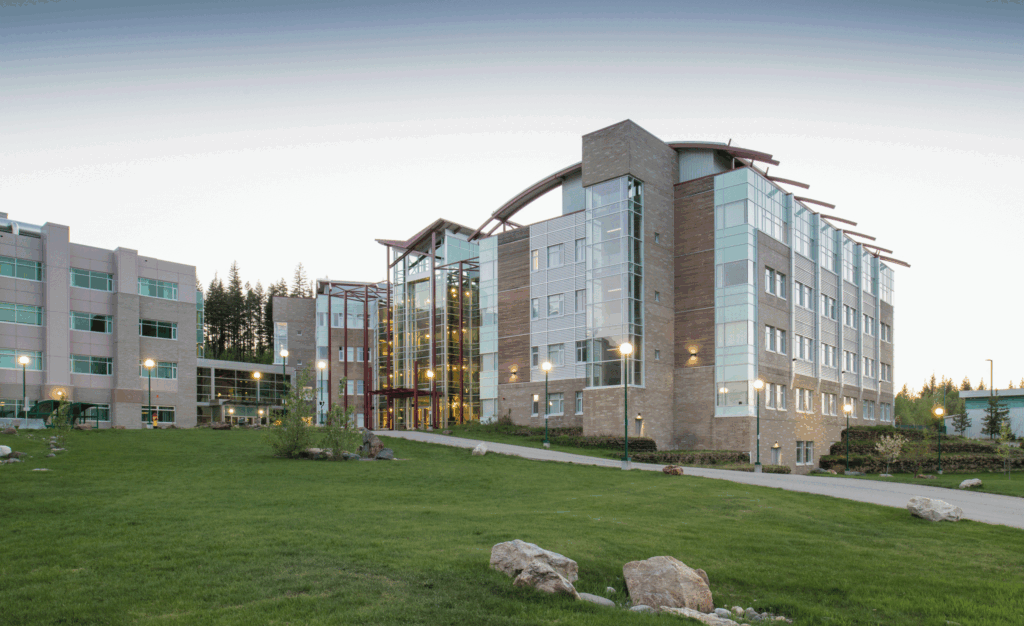
Transportation Expenses in Ireland for Students in 2025
Transportation is a crucial part of student life in Ireland, especially for those living off-campus. While Ireland offers a reliable public transport system, the cost of public transport for students can add up quickly. Knowing your options and planning your budget effectively can save you a lot of money.
In this guide, we will explore the cost of using public transport, the benefits and limitations of the Student Leap Card, and the expenses of owning a bicycle or car in Ireland. For more information on public transport, visit the Transport for Ireland website (link).
Student Leap Card: Discounts and Limitations
The Student Leap Card is the most popular choice for students using public transport in Ireland. It offers discounts of up to 30% on buses, trains, and trams (Luas) across cities like Dublin, Cork, Galway, and Limerick. The card itself costs €10 and is valid for one year. Using this card, a student can travel within Dublin for about €100 per month on an unlimited pass.
Key benefits:
- Discounts on Dublin Bus, Irish Rail, Luas, and Go-Ahead services.
- Student discounts at certain retail stores and eateries.
- Top-up options available online and at various outlets.
Limitations:
- The Student Leap Card discounts are not applicable for long-distance travel between cities.
- Not all private bus services accept the card.
- Some discounted fares have time restrictions during peak hours.
To apply for a Student Leap Card or to check the latest fares, visit the Leap Card website (link).
Cost of Owning a Bicycle in Ireland
For students living close to their universities, owning a bicycle can be a cost-effective and eco-friendly option. The initial cost of a decent bike ranges from €150 to €400. Additional costs include:
- Helmet and Lock: Around €50 to €70.
- Maintenance: Approximately €50 to €100 per year for repairs and servicing.
- Insurance: Optional, costing about €50 per year.
Many cities in Ireland also offer bike-sharing services like DublinBikes, which costs €25 per year for unlimited short trips. Using a bike can save you a lot on public transport costs and is a convenient way to travel short distances.
Cost of Owning a Car in Ireland
Owning a car as a student in Ireland can be expensive due to high insurance and fuel costs. Here’s a breakdown of the average annual expenses:
- Car Insurance: The biggest cost, especially for young drivers. It ranges from €1,200 to €2,500 per year for students.
- Fuel Costs: With fuel prices at approximately €1.70 per litre, the average monthly cost for city driving can be around €100 to €150.
- Parking Fees: In cities like Dublin, parking can cost €2 to €4 per hour. Residential parking permits cost about €50 to €100 per year.
- Motor Tax: Costs depend on the car’s engine size but usually range from €200 to €400 per year.
In total, owning a car can cost around €3,000 to €5,000 per year, making it less practical for most students. For students who need to travel between cities, using car-sharing services like GoCar might be a more affordable option.

Health Insurance and Medical Expenses for International Students in Ireland in 2025
For international students planning to study in Ireland, health insurance is not just a choice—it’s a requirement. The Irish government mandates that all non-EU students must have private health insurance to obtain a visa and stay in the country legally. While health insurance provides financial protection in case of medical emergencies, many students overlook the hidden costs associated with healthcare in Ireland.
In this guide, we will break down the cost of health insurance, GP visits, emergency services, and other hidden medical expenses that international students should be aware of. For official information, you can visit the INIS (Irish Naturalisation and Immigration Service) website (link).
Mandatory Health Insurance Requirements for Non-EU Students
All non-EU students must have valid health insurance to study in Ireland. The insurance must cover the entire duration of the student’s stay, including visa renewals. Without proof of insurance, students cannot register with GNIB (Garda National Immigration Bureau) or renew their visa.
Types of Health Insurance:
- Basic Health Insurance: Costs around €120 to €150 per year. It covers emergency medical treatment but not routine check-ups or specialist visits.
- Comprehensive Health Insurance: Costs between €300 and €600 per year. It covers GP visits, specialist consultations, and emergency services.
Recommended providers:
Choosing the right plan depends on your budget and healthcare needs. A comprehensive plan is advisable if you have pre-existing medical conditions or require regular medical attention.
Cost of GP Visits and Emergency Services
Even with insurance, you should budget for GP visits and other medical services. Here’s a breakdown of the costs:
1. GP Visits:
- Without insurance: A single GP visit costs €50 to €60.
- With basic insurance: Some plans offer a partial refund, covering €20 to €30 of the visit.
- With comprehensive insurance: Covers up to 5 visits per year.
To find a GP near you and their charges, visit HSE (Health Service Executive) (link).
2. Emergency Services:
- Emergency room (ER) visits: Cost around €100 to €120 if not admitted.
- Ambulance services: Can cost between €100 and €150 unless covered by comprehensive insurance.
Tip: Registering with a local GP can help reduce emergency room visits and save on costs.
Hidden Costs of Prescriptions and Specialist Consultations
1. Prescription Medications:
- Prescription costs can range from €10 to €30 per medication, even if you have insurance.
- Some insurance plans cover a portion of prescription costs, but the excess fee (out-of-pocket cost before insurance kicks in) can be around €50 to €100 per year.
2. Specialist Consultations:
- Without insurance, visiting a specialist can cost between €100 and €200 per visit.
- Comprehensive insurance often covers a part of this cost, but you may still need to pay an excess fee of about €50.
Tip: To save on prescription costs, you can use the Drugs Payment Scheme (DPS), which caps monthly medication expenses at €80 for those eligible. Learn more on the HSE website (link).
Tips to Manage Healthcare Costs
- Choose the Right Plan: Opt for a plan that covers GP visits and prescriptions if you have ongoing health needs.
- Emergency Fund: Set aside about €200 to €300 for unexpected medical expenses not covered by insurance.
- Use Student Discounts: Some healthcare providers offer discounts for students, so always ask.

Visa and Immigration Charges for International Students in Ireland in 2025
If you’re planning to study in Ireland in 2025, understanding the student visa costs and other immigration-related charges is crucial. While tuition fees and living expenses are often the main focus, visa and immigration fees can add a significant amount to your budget. From application fees to hidden costs like translation, attestation, and biometric appointments, being aware of these expenses can help you plan better.
In this guide, we will break down the Ireland student visa cost for 2025, including application fees, registration charges, and additional expenses that international students often overlook. For official and updated information, visit the INIS (Irish Naturalisation and Immigration Service) website (link)
Visa Application Fees and Renewal Charges
1. Initial Student Visa Application Fee:
- The fee for a single-entry visa is €60, allowing one-time entry to Ireland.
- The fee for a multiple-entry visa is €100, which is advisable for students planning to travel outside Ireland during their studies.
The visa application fee is non-refundable, even if your visa is rejected. Therefore, it is essential to ensure that your application is complete and meets all requirements. You can apply for the visa online via the AVATS portal (link).
2. Visa Renewal Charges: If your course duration is longer than a year, you will need to renew your visa annually. The renewal fee is €300 per year. Make sure to budget for this cost if your program extends beyond a year.
Immigration Registration Fee with GNIB
All non-EU students staying in Ireland for more than 90 days must register with the Garda National Immigration Bureau (GNIB). This is a mandatory requirement to get a Residence Permit (IRP card).
GNIB Registration Fee:
- The cost is €300 per year.
- This fee must be paid at the time of registration and for each renewal.
During the GNIB registration, you will need to provide documents like your passport, visa approval letter, proof of address, and health insurance. It is advisable to book an appointment in advance through the INIS online appointment system to avoid delays.
Hidden Costs: Translation, Attestation, and Biometric Appointments
While the visa application and registration fees are the most visible costs, several hidden expenses can add to your budget. Here are some of them:
1. Translation and Attestation Fees: If your documents (like birth certificate, academic transcripts, or financial statements) are not in English, you will need to get them translated and attested.
- Translation cost: Around €20 to €50 per document.
- Attestation cost: Varies but is usually around €10 to €30 per document.
Tip: Use services approved by the Irish Translators’ and Interpreters’ Association (link) to avoid any issues.
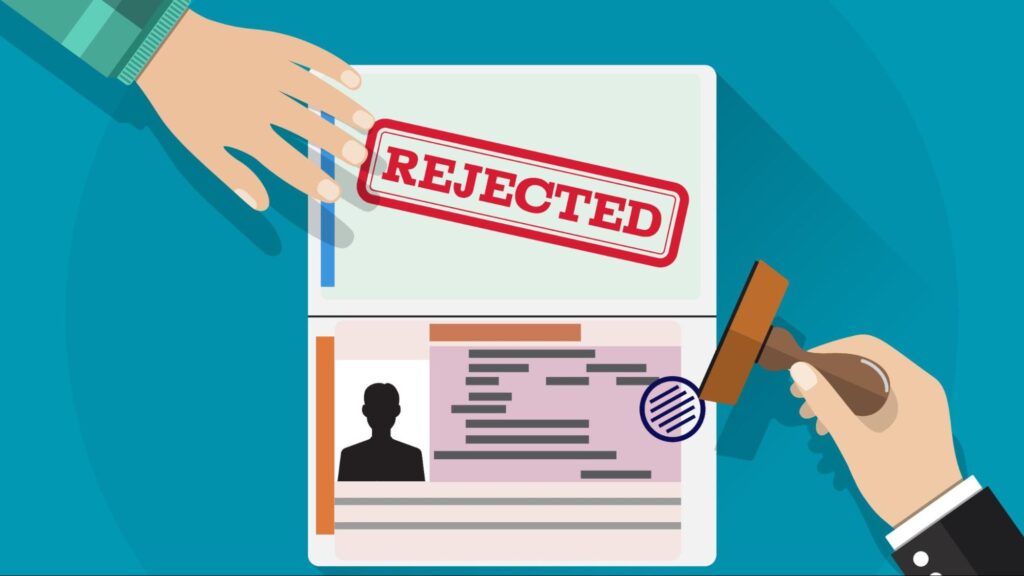
Part-Time Work Challenges and Costs for International Students in Ireland in 2025
For many international students, working part-time is essential to manage the high cost of living in Ireland. While part-time jobs offer a way to earn extra money and gain valuable work experience, they also come with certain challenges and hidden costs that students often overlook. Understanding these challenges can help students make informed decisions about working during their studies.
In this guide, we will explore the limitations on working hours, hidden costs such as commuting, uniforms, and taxes, and the impact of part-time work on study-life balance. For more information on part-time jobs for students, visit the Education in Ireland website (link).
Limitations on Working Hours for International Students
International students in Ireland on a Stamp 2 visa can work:
- 20 hours per week during term-time.
- 40 hours per week during semester breaks (June to September and mid-December to mid-January).
Challenges:
- Finding flexible jobs: Most part-time jobs require minimum weekly hours, making it difficult to balance work and studies.
- Minimum wage: The minimum wage in Ireland in 2025 is approximately €11.50 per hour, which might not be enough to cover all living expenses, especially in cities like Dublin.
Working more than the permitted hours can lead to visa issues and impact your stay in Ireland. For detailed information on work permits, visit the INIS (Irish Naturalisation and Immigration Service) website (link).
Hidden Costs: Commuting, Uniforms, and Taxes
1. Commuting Costs:
- If you find a part-time job far from your university, commuting costs can add up quickly.
- Using public transport in Dublin, for example, can cost around €100 per month with a Student Leap Card. Without the card, this cost can increase significantly.
- Cycling is a cheaper option, but you’ll need to budget for bike maintenance and accessories.
Tip: Use the Student Leap Card for discounted travel on buses, trains, and trams. Check out the Leap Card website for more information (link).
2. Uniform and Equipment Costs:
- Many part-time jobs in retail and hospitality require you to buy your own uniforms and safety gear.
- The cost of uniforms can range from €30 to €80 depending on the job. For example, working in a restaurant may require you to buy non-slip shoes and uniforms.
- Some employers offer uniforms for free, but it’s essential to ask during the interview.
Tip: Check if the employer reimburses uniform costs after a probation period.
3. Tax Deductions and PRSI:
- All part-time workers in Ireland are subject to income tax and PRSI (Pay Related Social Insurance).
- If your income exceeds €16,500 per year, you will need to pay taxes, which can reduce your net earnings significantly.
- Registering for a PPS number and understanding the Tax Credit system is essential to avoid overpaying taxes. For more information, visit the Revenue.ie website (link).
Tip: Use the Revenue Online Service (ROS) to claim tax refunds and manage your tax credits.
Tips to Manage Part-Time Work Effectively
Prioritize Local Jobs: Look for part-time jobs on campus or near your university to reduce commuting time and costs.
Choose Flexible Employers: Opt for employers who understand student schedules and offer shift flexibility.
Track Your Hours: Keep track of your work hours to avoid exceeding the permitted limits, which can lead to visa complications.

Entertainment and Social Costs for Students in Ireland in 2025
Student life in Ireland in 2025 is vibrant and full of opportunities to socialize, explore, and have fun. From dining out and visiting pubs to joining clubs and attending events, there are countless ways to enjoy your time as an international student. However, the cost of entertainment and social activities can add up quickly if not managed wisely.
In this guide, we will break down the costs associated with dining out, pubs, events, and club memberships. We will also uncover some hidden expenses linked to socializing and networking in Ireland. For more tips on managing student life expenses, visit the Education in Ireland website (link).
Cost of Dining Out, Pubs, and Events
1. Dining Out:
- Eating at budget-friendly restaurants or cafés in cities like Dublin, Cork, or Galway costs around €10 to €15 per meal.
- A three-course meal at a mid-range restaurant can cost between €25 and €40 per person.
- Fast food options like McDonald’s or Subway cost around €7 to €10 for a meal.
Tips to Save:
- Look for student discounts or daily specials at restaurants.
- Opt for lunch specials, which are usually cheaper than dinner menus.
2. Pubs and Nightlife:
- A pint of beer in Ireland costs around €5 to €7 depending on the city, while cocktails can cost €10 to €15.
- Cover charges for clubs range from €5 to €15 on weekends.
- For those who enjoy nightlife, a typical weekend outing can cost between €30 and €50, including drinks and cover charges.
Tip: Use the Student Leap Card for discounted or free entry to some pubs and clubs.
3. Events and Festivals:
- Tickets for concerts or sports events can range from €20 to €80 depending on the venue and popularity.
- Entry fees for local events or sightseeing (like Cliffs of Moher or Guinness Storehouse) can cost between €10 and €25.
- Many Irish cities host free festivals and parades, which are great for enjoying local culture without spending much.
For event listings and discounts, check out Eventbrite Ireland (link).
Club and Society Membership Fees
Joining clubs and societies is a popular way for students to meet new people and pursue hobbies. However, these memberships often come with additional costs.
1. Membership Fees:
- Most university clubs charge a membership fee ranging from €5 to €20 per year.
- Sports clubs like rugby, football, or swimming may have additional charges for gear, uniforms, and travel, which can add up to €50 to €100 per year.
2. Hidden Costs:
- Workshops and Trips: Many clubs organize workshops or trips that require additional payments of €20 to €50.
- Uniforms and Equipment: Some clubs require you to buy uniforms or equipment, costing another €30 to €50.
Tip: Join clubs that offer student discounts or free trials to explore options before committing.
Hidden Costs of Socializing and Networking
Apart from the obvious costs, socializing and networking in Ireland come with several hidden expenses:
1. Transport Costs:
- Attending events or visiting friends can increase public transport costs by €20 to €30 per month.
- For those using taxis or ride-sharing apps like Free Now, fares can range from €10 to €20 per ride.
Tip: Use carpooling or walk for short distances to save money.
2. Gifting and Group Activities:
- Participating in birthday parties or group dinners often involves splitting the bill or buying gifts, which can cost €20 to €40 per occasion.
- Contributing to group trips or movie nights can add another €10 to €30 per month.
Tip: Suggest potluck dinners to share costs when hanging out with friends.
3. Networking Events and Conferences:
- For those looking to build professional connections, attending networking events or seminars can cost between €15 and €30 per entry.
- Some professional events require formal attire, which is another hidden cost.
Tip: Many universities offer free networking events—keep an eye on your campus bulletin or website.
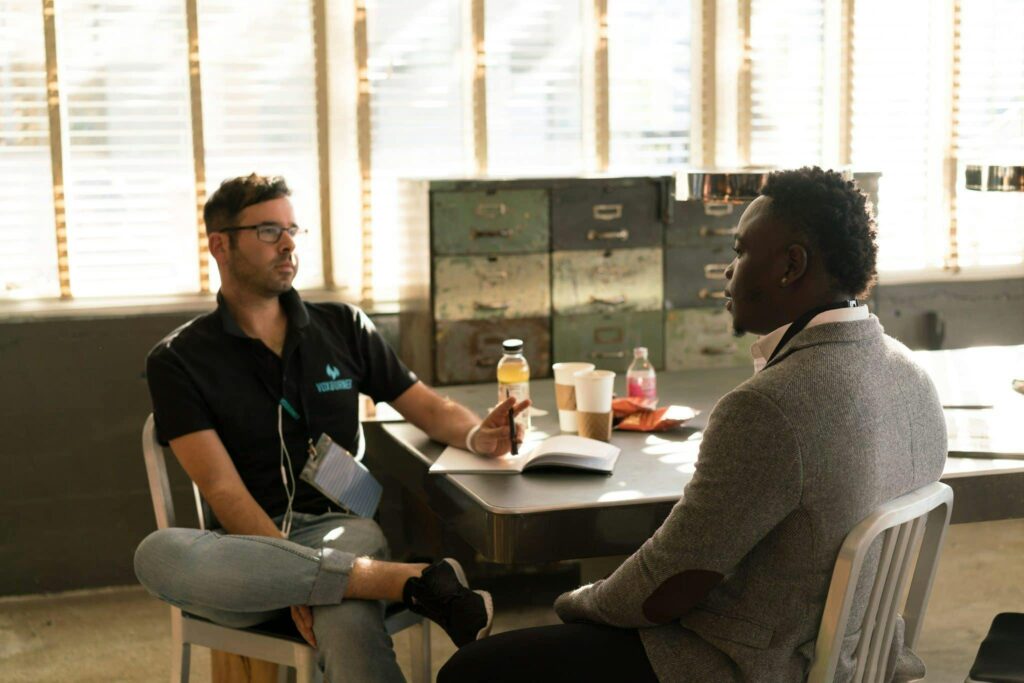




Ireland offers excellent educational opportunities, but many students underestimate the hidden costs. It’s crucial to plan for expenses like healthcare, club memberships, and social activities to avoid financial stress. Creating a detailed budget can help you manage these costs effectively. Staying informed will allow you to focus more on your studies and less on unexpected expenses. How can students better prepare for these hidden costs before moving to Ireland?
The clarity and insight you offer here have the power to change the way we see the world around us.
Reading this is akin to observing the slow growth of a plant. Each sentence contributes to the unfolding whole, revealing beauty in its own time.